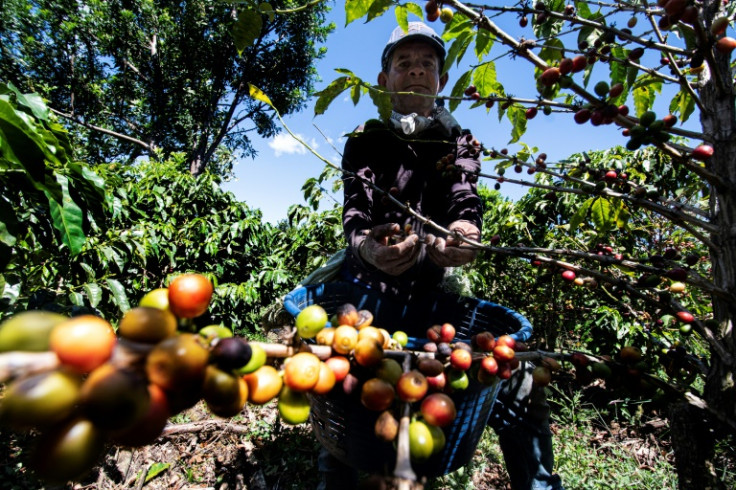Coffee farmers in Honduras react to the sustainable coffee movement
A Rural Voices survey found that coffee consumers and coffee farmers have contrasting views on sustainability.

In the past, sustainability in the coffee industry has been promoted. However, recent data shows that coffee farmers hold a different perspective on sustainability.
Rural Voices conducted a survey to investigate the assumption that the coffee industry has similar views on sustainability. The 2023 Special Coffee Expo follows farmers and farmworkers through discussions surrounding sustainability. The survey includes more than 150 voices of coffee consumers in the US, and almost 100 coffee farmers in Honduras, Central America.
Honduras is home to the most organised sector of the coffee field. In recent years, the coffee sector in Honduras has increased its efforts to produce better quality coffee farms – from standard to speciality.
Between the years 2009 and 2021, the export of coffee beans in Honduras has risen from 3,460,000 bags to 1,083,000 bags.
Honduras now dominates the export of coffee in Central America and is the prime source of commercial-grade arabica beans. In addition to the most popular arabica beans being distributed from Honduras, coffee farms in Honduras also produce Lempira and Parainema beans.
The Rural Voices survey, which highlights coffee farmers' opinions on sustainability, found that only 31 per cent of coffee farmers believed that the sustainability movement has been beneficial to farmers. In comparison, a huge 78 per cent of coffee consumers were under the impression that the sustainability movement has benefitted the farmers in the coffee field.
The sustainable coffee movement is a collaborative challenge that insists on transitioning the coffee sector to be "fully sustainable". Coffee companies, governments, NGOs and research institutions are collaborating to create a common vision of sustainability.
Dr M. Sanjayan, the CEO of Conservation International (a non-profit environmental organisation) declared: "It's time to think about coffee beyond our daily cup. Coffee holds the promise of driving sustainable agriculture and farmer prosperity across commodity crops and engaging hundreds of millions of people around the globe in sustainable living."
The new sustainable practices in the movement include improving the income of 25 million coffee farmers and farmworkers, tripling the productivity of coffee farmers to match the increasing coffee consumers in a sustainable way, and preventing the clearing of high conservation-value forests or other natural recourses.
The Rural Voices survey also inquired about the future of the coffee industry. Most of the coffee farmer participants noted that economic aspects were the most important, whereas the coffee consumers prioritised environmental topics.
A weekend at a coffee farm in the middle of nowhere Honduras#leicaq2 pic.twitter.com/YglyoegCXU
— Dave (@DavidWeflen) February 28, 2023
The coffee farmers also expressed that the sustainability movement must consider issues of migration, climate change and pricing. The coffee consumers, however, focused on the issues of working conditions and equity.
A Fairtrade International report states that the average wage for a small coffee producer in 2019, was less than $1 for a pound of coffee beans. Another report, conducted in 2022 by MTPak Coffee, found that women are responsible for the huge majority of labour on a coffee farm. Women dominate roles in fieldwork, coffee harvesting, processing and sorting.
Speaking of the studies that found female-led farms less profitable but more sustainable, Nicole, the Leader of the Female Barista Society, said: "These structures leave nutritious land for future generations, and help these women secure their survival and protect the environment."
To improve the sustainability of the coffee sector, the farmers called for "paying farmers better prices", together with, "buying directly from farmers".
Don Panchito, a lifelong Coffee Farmer in Honduras, told reporters: "There are times when buyers demand more than I can produce, and it can get difficult, especially for a low price. Our work here truly is handcrafted. We live poorly as you can see, but we are happy. What I dedicate my life to makes me happy."
However, the Rural Voices survey highlighted another huge gap in regard to understanding the coffee industry. Coffee consumers were evenly split between eight sustainable solution strategies. These strategies include making donations to coffee farmers, providing training and education to coffee farmers and requiring sustainability certifications.
The Rural Voices survey concluded that in order to improve the sustainable aspects of the coffee industry, it is inherent that the voices of coffee farmers, farmworkers and other persons with first-hand experience of coffee production are prioritised and heard.
© Copyright IBTimes 2025. All rights reserved.






















